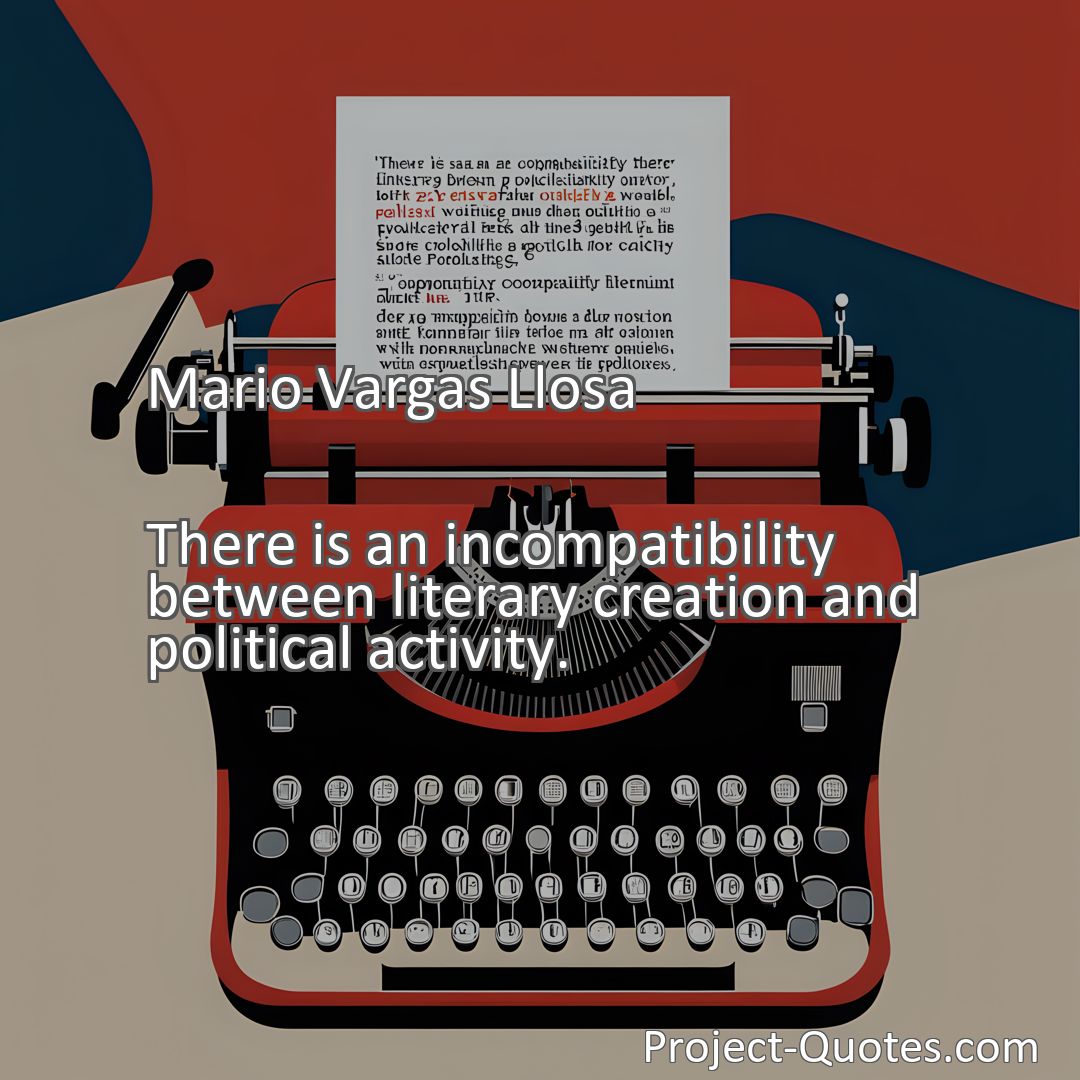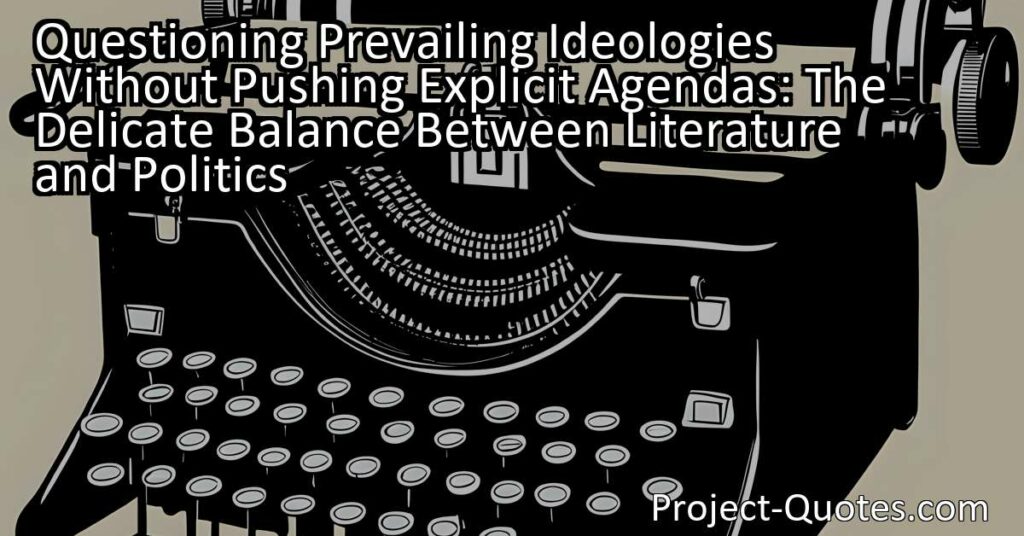There is an incompatibility between literary creation and political activity.
Mario Vargas Llosa
This essay explores the delicate balance between literature and politics, highlighting the importance of questioning prevailing ideologies without pushing explicit agendas. While literature has the power to shape opinions and inspire social change, it must maintain its artistic integrity and autonomy. By remaining objective and presenting multiple perspectives, writers can encourage readers to critically analyze societal issues and foster empathy without becoming mere mouthpieces for political agendas.
Table of Contents
Meaning of Quote – There is an incompatibility between literary creation and political activity.
The Delicate Balance between Literary Creation and Political Activity
Introduction:
In the realm of literature, the power of words holds the ability to shape opinions, challenge norms, and inspire social change. However, one must carefully navigate the realm of political activity in order to preserve the purity and artistic integrity of literary creation. Mario Vargas Llosa, a renowned Peruvian novelist and essayist, highlights the inherent incompatibility between literary creation and political activity. This essay expands on this thought-provoking quote to explore the delicate balance between the two spheres, examining the impact that politics can have on literature and vice versa, while ultimately emphasizing the significance of preserving the autonomy of literary creation.
A Confluence of Art and Politics:
At the surface level, literature and politics may seem intertwined, as both involve the communication of ideas and the shaping of public discourse. Throughout history, numerous writers have actively engaged in political movements, using their words to advocate for change. Works such as George Orwell’s “1984” and Aleksandr Solzhenitsyn’s “One Day in the Life of Ivan Denisovich” serve as poignant examples of literature’s capacity to expose the injustices of political systems. These authors sought to shed light on the harsh realities faced by individuals under oppressive governments, highlighting the need for political awareness and activism.
The Impact of Politics on Literary Creation:
While literature has the remarkable ability to influence political ideologies, politics can simultaneously stifle the creativity and freedom of expression essential to literary creation. The politicization of art may lead to censorship, self-censorship, or pandered messages designed to align with prevailing political narratives. When writers are reduced to advocating for political causes, their work may lose its nuance, depth, and universality. Instead of engaging with complex human experiences, they risk becoming mere mouthpieces for political agendas. Furthermore, political involvement often requires an immediate response and a sense of urgency that may restrict the time and contemplation necessary for crafting enduring literary works.
The Dangers of Political Instrumentalization:
Mario Vargas Llosa’s quote reminds us of the risks associated with blurring the line between art and politics. When literature is used as a tool for political gain or propaganda, it loses its inherent beauty and transformative potential. Art should be capable of transcending borders, ideologies, and time, allowing readers to interpret, reflect, and engage in meaningful dialogue. When consumed by political motivations, literature can become polarizing, generating division rather than fostering unity. The clash of personal convictions can overshadow the core human experiences that literature seeks to explore.
Preserving Literary Autonomy:
In order to guard the autonomy and creative freedom of literary creation, writers must resist the temptation to succumb to overt politicization. By remaining objective and detached from immediate political contexts, writers can present multiple perspectives, encouraging readers to critically analyze societal issues. Their stories can evoke empathy, inspiring readers to question prevailing ideologies without pushing explicit agendas. The power of literature lies in its ability to help individuals transcend their own experiences, thereby fostering empathy and connecting people across time and culture.
Mutual Inspiration: Literature and Politics:
While politics can influence literature, the reverse is also true. Powerful literary works have the potential to shape political thought and action. Stories can illuminate the human condition, introducing readers to diverse characters and cultural perspectives. By providing windows into new worlds, literature enables readers to empathize with others’ experiences and challenges preconceived notions. This heightened awareness can instigate societal shifts and inspire political change.
Moreover, literature has an immense capacity to humanize political discourse. When grappling with complex issues, politicians and policymakers can draw upon works of fiction and non-fiction to glean insights into the human aspects of policy decisions. By engaging with literature, political leaders can broaden their perspectives, leading to more inclusive and empathetic governance.
Conclusion:
In Mario Vargas Llosa’s insightful quote, he alerts us to the potentially harmful consequences of merging literary creation with political activity. While literature can certainly shape political thought and inspire social change, it is crucial to maintain the autonomy of artistic expression. Both realms, literature and politics, play a unique role in society, and it is the delicate balance between the two that ensures a fruitful relationship. As readers, writers, and consumers of literature, let us value the transformative power of literature while safeguarding its capacity to transcend political boundaries and inspire genuine human connection.
I hope this quote inspired image brings you hope and peace. Share it with someone who needs it today!


